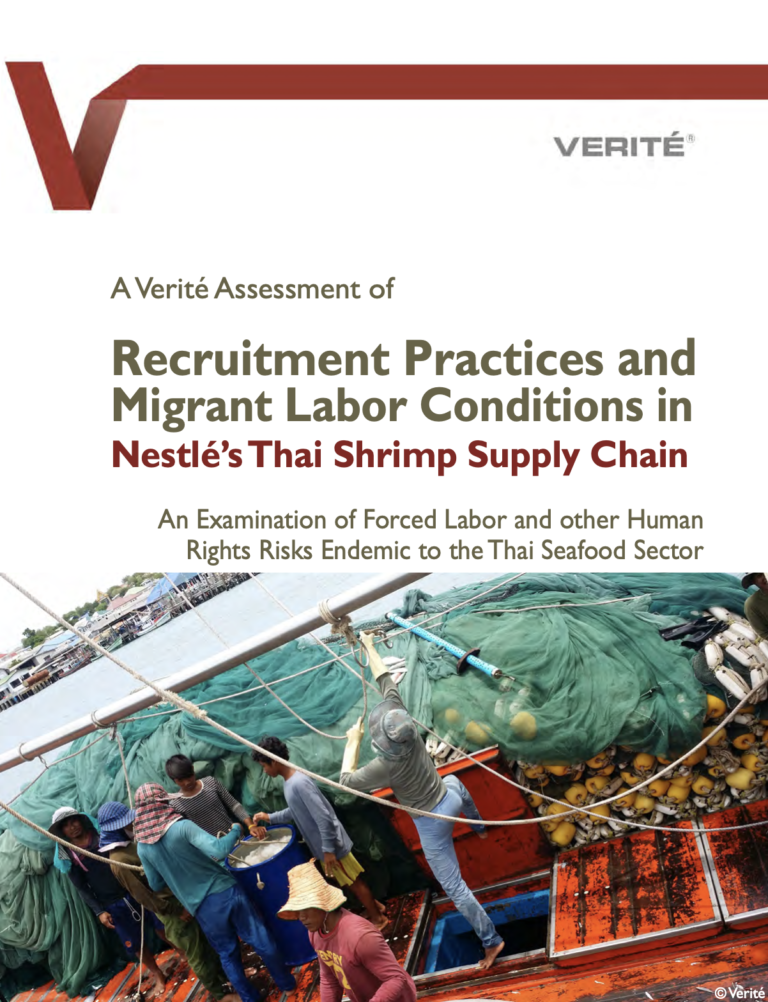Seeking to better understand the risks of forced labour and human trafficking in the Thai seafood industry, Nestlé contracted Verité to conduct a focused investigation of six production sites in Thailand—three shrimp farms (one in Mahachai and two in Surat Thani), two ports of origin (Ranong Fish Port and Mahachai Fish Port), and one docked fishing boat (in Ranong Fish Port). These sites were identified by a third-party supply chain mapping consultant as being linked with the fishmeal (or fish feed) used as feed input in farms producing whole prawns for Nestlé. Verité assessed these and a number of other worksites in the same supply chain. The three-month assessment focused on forced labour and trafficking risks in the recruitment, hiring, employment and living conditions of foreign migrant workers in the targeted vessel-to-marketplace shrimp and fishmeal supply chain of one of Nestlé’s key suppliers.

